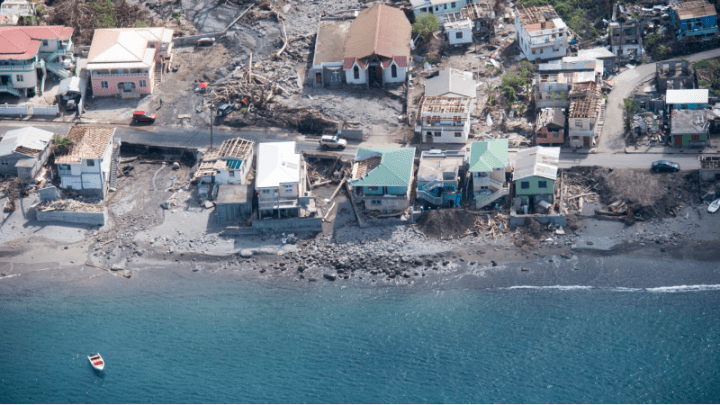
Resilience is a buzz word that permeates nearly every conference and conversation on climate change. Dominica, a Caribbean island of just 70,000 residents, wants to define what the term means by setting the goal of becoming the first climate-resilient nation by 2030.
The ongoing plan is two years underway, influencing every budgetary decision and construction project, according to Pepukaye Bardouille, CEO at the Climate Resilience Execution Agency for Dominica, or CREAD. Becoming resilient goes beyond planning for extreme weather events, which particularly threaten low-income, small islands like Dominica. It’s also about community engagement and strong communication, Bardouille said.
“When I say resilience, it’s not about cleaning beaches. It’s about disaster management committees at your village level. It’s about making sure that people who aren’t generally excluded, be they disabled or elderly, are brought into the mainstream so they understand their rights and we understand their vulnerability,” Bardouille told Devex.
“Yes, we’re implementing projects, but we’re also kind of changing mindsets and behaviors at the national level. And that is beginning to be visible,” Bardouille continued.
The Virtual Island Summit: Did it work?
The Virtual Island Summit was a fully digital, week-long, zero-carbon conference. Founder James Ellsmoor discusses what worked and where fully online conferences can be improved.
Resilience is increasingly central to conversations among Caribbean islands and other small island states, but the word often translates into various meanings for different countries and communities, according to James Ellsmoor, founder of the Virtual Island Summit, an annual online event that convenes small islands.
This is an excerpt from an article by Amy Lieberman, originally published on devex.


